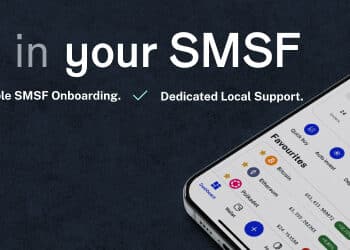Being part of a dealer group model doesn’t appeal to everyone.
There has always been a cohort of advisers who choose to hold and manage their own Australian Financial Services Licence (AFSL) and that trend is steadily increasing.
Still, there’s no denying dealer groups provide many valuable services.
The good news is, advisers don’t need to be part of one to access them.
Many self-licensed practices outsource all, or part, of their back-office including compliance, training and technology, to third party dealer services providers; most of which are an extension of an existing dealer group.
This enables them to access the scale, efficiencies and expertise of an established dealer group while freeing them up to spend more time in front of clients.
According to research by Investment Trends, the self-licensing trend is accelerating with one in five advisers indicating their hold their own licence. Almost 80 per cent outsource key functions, especially around Statement of Advice (SoA) build, compliance and client engagement.
The balancing act
Self-licensing promises much. It allows advisers to give advice and choose products that suit their clients without institutional bias. It allows them to develop a brand that is not compromised by the behaviour of institutions or others inside a dealer group.
But with greater freedom and control comes more responsibility. Financial advice is one of the most heavily regulated industry sectors and those demands are only likely to increase.
It will take time and money to meet this rising regulatory burden. Unfortunately, advisers and their clients will have to carry this weight.
Striking the right balance between the freedom of self-licensing and managing the associated demands and obligations is a challenge. All too often, practice principals go down the self-licensing path and then quickly find they rarely have the time to see clients.
Partnering with an experienced dealer services provider like LaVista Licensee Solutions is the middle ground.
It enables advisers to economically outsource many regulatory functions.
While the responsible manager (RM) has responsibility for meeting AFSL obligations, they can outsource difficult tasks like creating compliance policies, tracking CPD obligations, and the supervision and monitoring of authorised representatives.
Full service offerings also include software and remuneration management.
Due diligence remains crucial
Dealer services providers should be assessed in the same way as any other service provider, particularly as the AFSL holder remains responsible for carrying out the obligations of the licence.
Advisers should examine every aspect of the support services on offer before making a commitment. One simple way is to check how advisers operating under the organisation’s full dealer group offerings rate the support they receive – after all, the services will be similar, if not identical.
The terms of the contract are also important. Is the contract overly restrictive, locking in every major back office component of the business? Or, is it at the other end of the spectrum: so flexible that advice practices are at risk of inadvertently missing out on key support they may not know they need? Balance is the key.
Does the dealer services provider offer broader support such as business coaching and consulting?
Outsourcing should never be considered a magic bullet, but it should provide scale benefits, access to a broader network and act as a platform to solve problems.
Ultimately, licensee support providers recognise that nobody can do everything well themselves – and they shouldn’t have to. It’s about leveraging the systems and processes created by others to build your practice so you can focus on delivering quality advice to clients.
Find out more about LaVista Licensee Solutions
Mike Pope is Chief Executive Officer of LaVista Licensee Solutions. He can be contacted at mike.pope@lavista.com.au.







